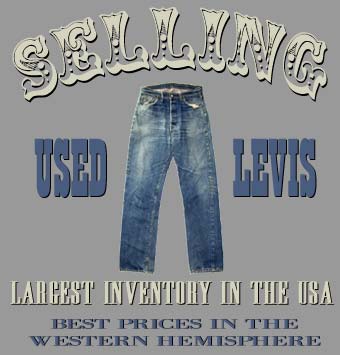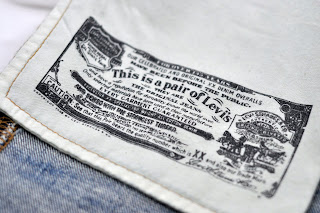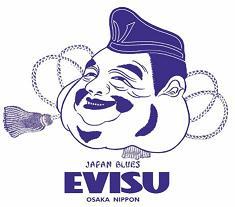16 Dis 2011
19 Nov 2011
29 Okt 2011
10 Okt 2011
2 Okt 2011
ALTERATION
BUTTON = RM2
ZIP JEANS = RM8
ZIP SLACK = RM7
POTONG = RM5-RM7
POTONG ORI = RM10-RM12
KECIL KAKI = RM5-RM7
KECIL KAKI TULANG = RM15-RM18
KECIL PINGGANG = RM18
ZICZAG = RM4-RM++
ZIP JEANS = RM8
ZIP SLACK = RM7
POTONG = RM5-RM7
POTONG ORI = RM10-RM12
KECIL KAKI = RM5-RM7
KECIL KAKI TULANG = RM15-RM18
KECIL PINGGANG = RM18
ZICZAG = RM4-RM++
30 Sep 2011
Sejarah Replay , Replay History

Established in 1981, Fashion Box S.p.A. is now
one of the leading international companies in
the denim sector.
The Italian Group which is based in Asolo
(Treviso) creates, promotes and distributes
men’s, women’s and children’s casual wear,
accessories and footwear.
It trades under the brands REPLAY,
RELAY&SONS, WE ARE REPLAY, RED SEAL
and WHITE SEAL.
Other brand extension projects like eyewear
and the Replay perfume lines are assigned to
licence partners.
The company’s mission has always been to excel
in its innovative style, characteristic Italian
design and superior quality of its products; the
skill and expertise gained in the production of
denim, in particular, is a special, unique asset
to the Group.
one of the leading international companies in
the denim sector.
The Italian Group which is based in Asolo
(Treviso) creates, promotes and distributes
men’s, women’s and children’s casual wear,
accessories and footwear.
It trades under the brands REPLAY,
RELAY&SONS, WE ARE REPLAY, RED SEAL
and WHITE SEAL.
Other brand extension projects like eyewear
and the Replay perfume lines are assigned to
licence partners.
The company’s mission has always been to excel
in its innovative style, characteristic Italian
design and superior quality of its products; the
skill and expertise gained in the production of
denim, in particular, is a special, unique asset
to the Group.
Expansion into new markets and increasing
control of the distribution network are key
strategic objectives for Fashion Box as well as
product vision. At present, Fashion Box operates
in all European markets and in the Middle East,
Asia America and Africa in over 50 countries.
The wholesale distribution network has 5,000
sales outlets with 220 retail stores.
2009 total annual sales amount to 272 million
euros and exports account for 85% of the
turnover.
Since 2010, Equibox Holding SpA, a company
controlled by Matteo and Massimo Sinigaglia,
has been Fashion Box SpA’s majority shareholder
and the Buziol family, the long-standing
partner, its minority shareholder (49%).
control of the distribution network are key
strategic objectives for Fashion Box as well as
product vision. At present, Fashion Box operates
in all European markets and in the Middle East,
Asia America and Africa in over 50 countries.
The wholesale distribution network has 5,000
sales outlets with 220 retail stores.
2009 total annual sales amount to 272 million
euros and exports account for 85% of the
turnover.
Since 2010, Equibox Holding SpA, a company
controlled by Matteo and Massimo Sinigaglia,
has been Fashion Box SpA’s majority shareholder
and the Buziol family, the long-standing
partner, its minority shareholder (49%).
Sejarah True Religion , True Religion History


Jeffrey Lubell founded True Religion in 2002 with the intention of redefining premium denim. His vision was to make quality, American-made, authentic, timeless, great fitting, 1970’s inspired jeans wear, with a trendsetting appeal for today’s consumer.
Today, True Religion Brand Jeans is known not only for its denim, but also for its knit and woven sportswear, such as t-shirts, western shirts, sweatshirts and sweatpants that all have that vintage feel.
True Religion’s commitment to perfect fit, timeless style and that hippie bohemian chic flair have solidified True Religion’s brand position as a leader in premium denim and casual sportswear globally.
While continuing to expand True Religion’s line of jeans and sportswear, the company also branched out into numerous licensed products such as Footwear, Headwear, Swimwear, Eyewear, Hosiery, Socks, and Fragrance.
In addition to Licensing, True Religion owns and operates its own branded retail stores across the United States, which have provided the company with a platform to showcase the entire breadth of the product offering. The company also plans to roll out branded retail stores in Europe, Asia and Canada in 2010.
True Religion is and always will be Timeless, Hippie, Bohemian, Chic.

Sejarah Volcom , Volcom History

During the march dumps of 1991, Richard Woolcott and Tucker
Hall set off on a snowboard trip that would forever change
their lives.
Tucker had just been laid off of work and jumped in the car
on a routine Tahoe trip to visit Nathan Fletcher and Mark Gabriel.
After riding four days of fresh,
Richard called work with the excuse that they were snowed in
and extended his stay.
For more than a week,
they awoke every morning with two new feet of snow.
It was their first real experience riding powder and the new
obsession wouldn't stop.
Two weeks later Richard quit his job to take some time off and
snowboard.
He and Tucker had also talked of starting a clothing company
during the Tahoe trip but nothing was really final.
Later that spring,
the two came up with the idea of starting a riding company based
around the three sports they enjoyed.
With an initial $5000 from Richard's dad,
they started the process.
First the name and then the stone .
Volcom was born.
The Volcom idea would incorporate a major philosophy of the times,
"youth against establishment".
This energy was an enlightened state to support young creative
thinking.
Volcom was a family of people not willing to accept the
suppression of the established ways .
This was a time when snowboarding and skateboarding was looked
down on.
The U.S. was in a recession,
there were riots in LA and the Gulf War.
Change was in the air. Nirvana and Pearl Jam expressed it the best.
For the first two years, Richard and Tucker traveled around the
world on wild journeys with friends riding whatever they could.
The business side of things was minimal.
The headquarters were set up in Newport in Richard's bedroom and
all sales were run out of tucker's bedroom in Huntington.
The two knew nothing about how to make clothes but that didn't
matter.
It was all about spirit and creativity.
Clothing sales for the first year were $2600.
Since those wild beginnings, the Volcom Stone has spread slowly
across the world.
The Company has matured internally but continues to run off the
same philosophy it started with.
The Volcom thinking now flows through its art, music, films,
athletes and clothing….
Sejarah Levi's 501 , Levi's 501 History

Show Your Model Curves in Your 501 Blue Jeans
Here you will find some really interesting information regarding bluejeans. If you take your time and read this material carefully it could help change the way you view your blue jeans. Have fun and enjoy!
Behind your Levi 501 jeans is a lot more than just comfortable clothing that's both fashionable and durable. There's also a very interesting history about it.
Was it Levi Strauss?
For one, do you know that Levi Strauss, after whom the jeans are named, didn't make the jeans at all? Levi Strauss was a dry goods merchant who became a very successful businessman. He was also a philanthropist.He had a regular customer, a tailor named Jacob Davis. Jacob had a client who kept ripping the pockets of the pants that Jacob made.
Jacob's Ladder of Success with Jeans
Jacob developed a method of strengthening this man's trousers by putting metal rivets at the points of strain. The idea was a great success, and Jacob wanted to patent it. However, he did not have the $68 needed to file for a patent, so he asked Levi to be his business partner. Levi, seeing the potential, agreed.They held the patent for 20 years until it expired in 1891, allowing everyone else to copy the process of using metal rivets, which then became public domain. Another interesting story is the use of the word, "jeans." Denim pants have been used in the 1800s for work wear. "Waist overalls" was the name used for these work clothing.
You have guessed by now that this article gives a history of bluejeans and it may be something fun to learn since most models are fashion conscious. I sincerely hope you will get the whole bluejeans story from these informed experts.
When did Jeans become Jeans?
The word, "jeans," started to be used around the 1960s when the generation then adopted the term for this type of pants. Why "501" for Levi jeans? It just so happened that at around 1890, the type of pants made from denim supplied by the Amoskeag Mill in Manchester, New Hampshire, which gave the jeans a strong reputation regarding durability, was given the number 501. The number stuck to this day, giving the meaning that the 501 jeans you wear assures you of durability.If you learned only one or two new facts about bluejeans here they will help you in choosing the look that is best for you when you go to a fashion photography shoot.
The best way to help other young women who are fashion challenged is to gently help them with bringing out their best attributes when wearing 501's. Just remember to take your Levi 501 pants with you to your next session
Sejarah EVISU , Evisu History
Tahun | 1988 |
Ibu Pejabat | |
Pengasas | |
Evisu or Evisu Genes is a Japanese designer clothing company that specializes in producing premium denim wear through traditional, labor-intensive methods.
The brand was formally founded in 1991 in Osaka, Japan, by Hidehiko Yamane [1] although the research and planning necessary to reproduce the perfect pair of vintage jeans had been going on for several years prior to this. Yamane was trained as a tailor but his love for vintage jeans and his disappointment with the mass-produced modern versions led him firstly to the vintage clothing export business and then, revolutionarily, to start putting together the elements required to reproduce vintage-style jeans. This needed the gathering together of various bits of machinery, none of which had been produced for the last 40 years, which are required to make authentic vintage jeans.
The initial production line allowed about 14 pairs of jeans a day to be produced and each of them was lovingly hand-painted with the now famous seagull logo (Kamome) by Yamane himself. Evisu (also written as Evis or Ebisu) is the name of the Japanese folk god of money who is usually portrayed with a fish and a fishing rod. His name was selected for the new venture as money and fishing are two of Yamane's five favorite things (the others being beer, women and golf - in no particular order).
Although initially Evisu was more a labour of love than a commercial venture, Evisu jeans captured the imagination of the detail-obsessed Japanese fashion crowd, spurring a revival of interest in vintage denim which has now spread across the world. In the early 90's Yamane introduced a tailoring line, followed by fishing and golf lines. In 1999, he introduced a ladies fashion line called Evisu Donna to complete the development of Evisu as a full-fashion range going far beyond a jeans brand. Evisu now has 65 shops in Japan.
In March, 2006, the company and Yamane was reported to Tokyo District Public Prosecutor's Office along with another firm on suspicion of tax evasion. Yamane and the two firms stand accused of concealing more than 500 million yen of income as well as evading some 160 million yen in taxes over three years
The brand was formally founded in 1991 in Osaka, Japan, by Hidehiko Yamane [1] although the research and planning necessary to reproduce the perfect pair of vintage jeans had been going on for several years prior to this. Yamane was trained as a tailor but his love for vintage jeans and his disappointment with the mass-produced modern versions led him firstly to the vintage clothing export business and then, revolutionarily, to start putting together the elements required to reproduce vintage-style jeans. This needed the gathering together of various bits of machinery, none of which had been produced for the last 40 years, which are required to make authentic vintage jeans.
The initial production line allowed about 14 pairs of jeans a day to be produced and each of them was lovingly hand-painted with the now famous seagull logo (Kamome) by Yamane himself. Evisu (also written as Evis or Ebisu) is the name of the Japanese folk god of money who is usually portrayed with a fish and a fishing rod. His name was selected for the new venture as money and fishing are two of Yamane's five favorite things (the others being beer, women and golf - in no particular order).
Although initially Evisu was more a labour of love than a commercial venture, Evisu jeans captured the imagination of the detail-obsessed Japanese fashion crowd, spurring a revival of interest in vintage denim which has now spread across the world. In the early 90's Yamane introduced a tailoring line, followed by fishing and golf lines. In 1999, he introduced a ladies fashion line called Evisu Donna to complete the development of Evisu as a full-fashion range going far beyond a jeans brand. Evisu now has 65 shops in Japan.
In March, 2006, the company and Yamane was reported to Tokyo District Public Prosecutor's Office along with another firm on suspicion of tax evasion. Yamane and the two firms stand accused of concealing more than 500 million yen of income as well as evading some 160 million yen in taxes over three years
post ini telah saya pinjam dari blog lain...
Langgan:
Catatan (Atom)








